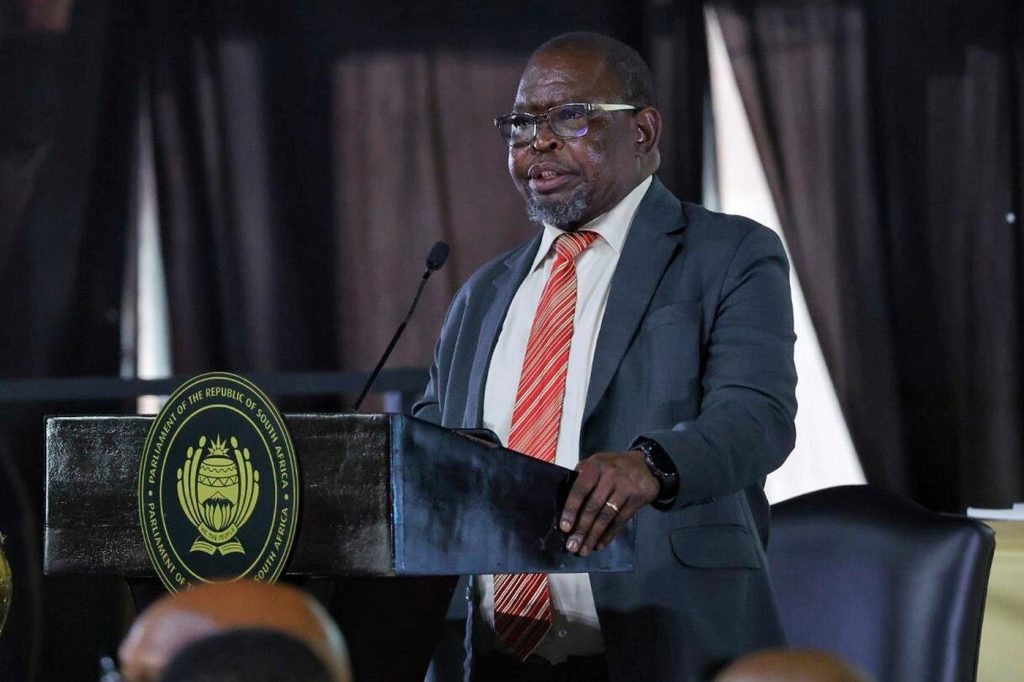JOHANNESBURG (AP) — On Thursday, the South African government decided to cancel a proposed tax increase that had become a contentious issue capable of destabilizing the unity government. This decision followed significant pushback from various political parties, indicating a fractured political landscape as the government seeks to manage its fiscal challenges.
Finance Minister Enoch Godongwana announced that the planned 0.5% increase in value-added tax (VAT), which would have raised the rate to 15.5%, would no longer be implemented. The VAT is applicable on a variety of goods and services, including essential items such as food and electricity. The proposed increase was part of the government's strategy to boost tax revenues, but it faced widespread criticism from opposition parties and civil society, who labeled it as anti-poor.
The VAT increase issue has added to the complexities faced by the unity government, which was formed after the African National Congress (ANC) lost its parliamentary majority for the first time since its rise to power in 1994. The ANC's diminished power has led to a coalition government, sparking ongoing negotiations and disagreements over fiscal policies.
Godongwana stated in a press release that the decision to forgo the VAT rise resulted from thorough consultations with various political parties and careful consideration of parliamentary committee recommendations. Despite the cancellation, the government anticipated that the projected revenue might fall short by approximately $4 billion, which poses challenges for future budget planning.
The Democratic Alliance (DA), the second-largest political party in South Africa and a member of the coalition, strongly opposed the VAT increase. The DA first voiced its disapproval by voting against the annual budget that included the proposed hike. Subsequently, the DA pursued legal action regarding the matter. Following the announcement of the cancellation, the DA proclaimed the decision a victory for the South African populace, emphasizing its commitment to advocating for responsible public spending to prevent the government from resorting to tax increases to cover expenditures linked to corruption and wasteful practices.
High unemployment rates in South Africa, estimated to be over 32%, alongside the fact that more than 20 million citizens depend on welfare grants, reinforces the potential negative impact of such tax increases on vulnerable populations. Civil society and opposition groups have echoed sentiments that the proposed VAT hike disproportionately burdens low-income families, highlighting the importance of scrutinizing fiscal policies to ensure equity and fairness in tax burdens.
Furthermore, the cancellation of the VAT increase illustrates the tensions within the coalition government, particularly between the ANC and DA, as it reflects underlying ideological divides on key issues encompassing foreign policy, land reform, education, and health sector reforms. The ongoing disagreements following the formation of the unity government last year signify the complexities of governance within a coalition framework in South Africa.
As the government navigates its fiscal challenges and manages the delicate balance of coalition dynamics, the future trajectory of South African politics and economic policy remains uncertain. With the looming pressures of revenue shortfalls and public expectations, the government faces critical choices that will influence the lives of millions of South Africans.











